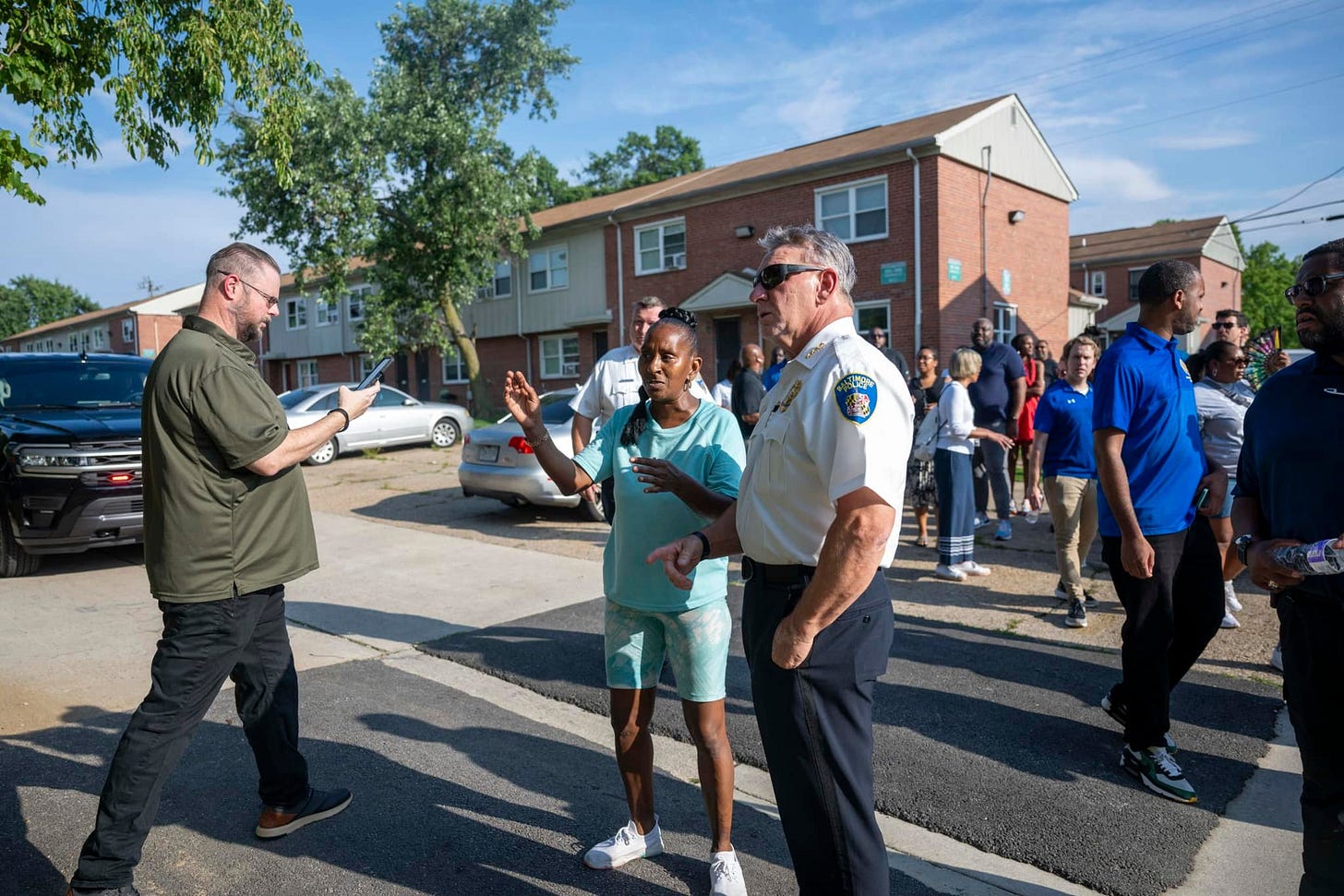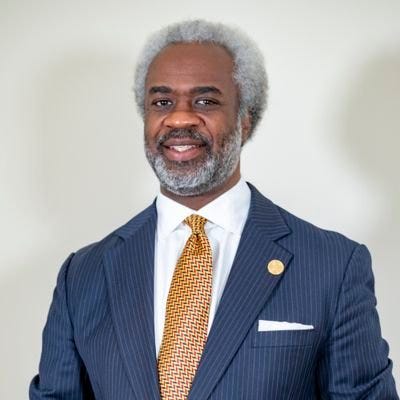Mayor Brandon Scott Nominates Richard Worley As Baltimore's Next Police Commissioner
Nod Comes Days After Worley's Mea Culpa for BPD's Failings in Brooklyn Homes Tragedy. City Council Panel to Begin Review of Nomination August 15.

By Gary Gately
Baltimore Mayor Brandon Scott officially nominated Richard J. Worley Jr. as the city’s next police commissioner Monday night, just four days after the acting commissioner apologized profusely for his department’s absence when gunfire killed two people and wounded 28 others at Brooklyn Homes.
“The acting commissioner is without a doubt the right person to lead the Baltimore Police Department into the future and build on the successful reforms we've made over the past few years,” Scott said in a statement before officially submitting his choice to the City Council.
.”With his leadership and vision, we will continue to confront Baltimore's public safety challenges, continue increasing trust in the department and continue making our communities safer."
Without discussion, the council assigned the nomination to its Rules and Legislative Oversight Committee, which will begin its review at an August 15 hearing.
Scott, a Democrat who became mayor in December 2020, tapped Worley, then a deputy BPD commissioner, to serve as acting commissioner on June 8. That came just hours of the resignation of Commissioner Michael Harrison, without Worley ever even being interviewed for the acting chief position.
Three weeks later, the Baltimore NAACP demanded that the city conduct a nationwide search for its next police commissioner.
"It is critical that our next commissioner is appointed through a transparent process that includes community engagement and real participation," the Rev. Kobi Little, president of the Baltimore City branch of the NAACP, said at a June 29 news conference.
“It is truly concerning that the general public, nor local community-led groups have been fully made aware of the process or how to be engaged. This process needs to be transparent, and inclusive of community voices to attempt to repair the damages that have been done. We cannot move forward without it."
Scott brushed aside the criticism.
Three weeks later, the Baltimore NAACP demanded that the city conduct a nationwide search for its next police commissioner.
"It is critical that our next commissioner is appointed through a transparent process that includes community engagement and real participation," the Rev. Kobi Little, president of the Baltimore City branch of the NAACP, said at a June 29 news conference.
“It is truly concerning that the general public, nor local community-led groups have been fully made aware of the process or how to be engaged. This process needs to be transparent, and inclusive of community voices to attempt to repair the damages that have been done. We cannot move forward without it."
Scott brushed aside the criticism.
The 59-year-old Worley, a native of Pigtown who joined the BPD as a patrol officer in 1998, rose through the ranks and has served as acting commissioner since June 8.
“This opportunity to continue the progress we’ve made in reducing violent crime, building public trust in our agency and to keep working alongside the brave men and women of BPD is an opportunity unlike any other,” Worley said in a statement Monday night. “As I meet with Baltimoreans around the city over the next few weeks, I am eager to learn and hear from them, and to discuss how we can build a safer Baltimore for all.”
Scott’s office said Worley will appear at seven community meetings and two telephone “town hall” meetings to make presentations and answer questions from citizens.
Worley, who makes about $208,000 a year as acting commissioner, expressed sorrow, remorse, anger and searing regret at a City Council hearing Thursday night as he acknowledged monumental failings in policing that left the Brooklyn Homes public housing complex with no officers in sight when gunfire killed two people and wounded 28 others.
He acknowledged an “absolutely unacceptable breakdown in communication and judgment.” He blamed it for the department’s failure to send officers to the Brooklyn Homes, where gunfire erupted at an annual community celebration early Sunday, July 2.
"We had multiple opportunities to intervene, and we did not take them,” Worley said at the Council’s Public Safety Committee hearing. “More importantly, we saw that the event was happening. When we saw the crowd gathering, when we got reports there were people with weapons, we could have and should have done more.”
With more than 800 people partying in the streets throughout the day and well into the night in a housing complex where gunfire rings out routinely after sunse, the BDP did not staff the “Brooklyn Day” celebration. Worse, it dispatched no officers despite 911 calls reporting gunshots ringing out and hundreds of people with guns and knives.
"I am saddened we weren't able to protect and serve. I didn't want to be on world news for something negative. I’m angry, sad and very disappointed,” Worley said.
He vowed that BPD would “ find out what happened and fix it,” adding “We have to see what happened here and make corrections so this never happens again.”




